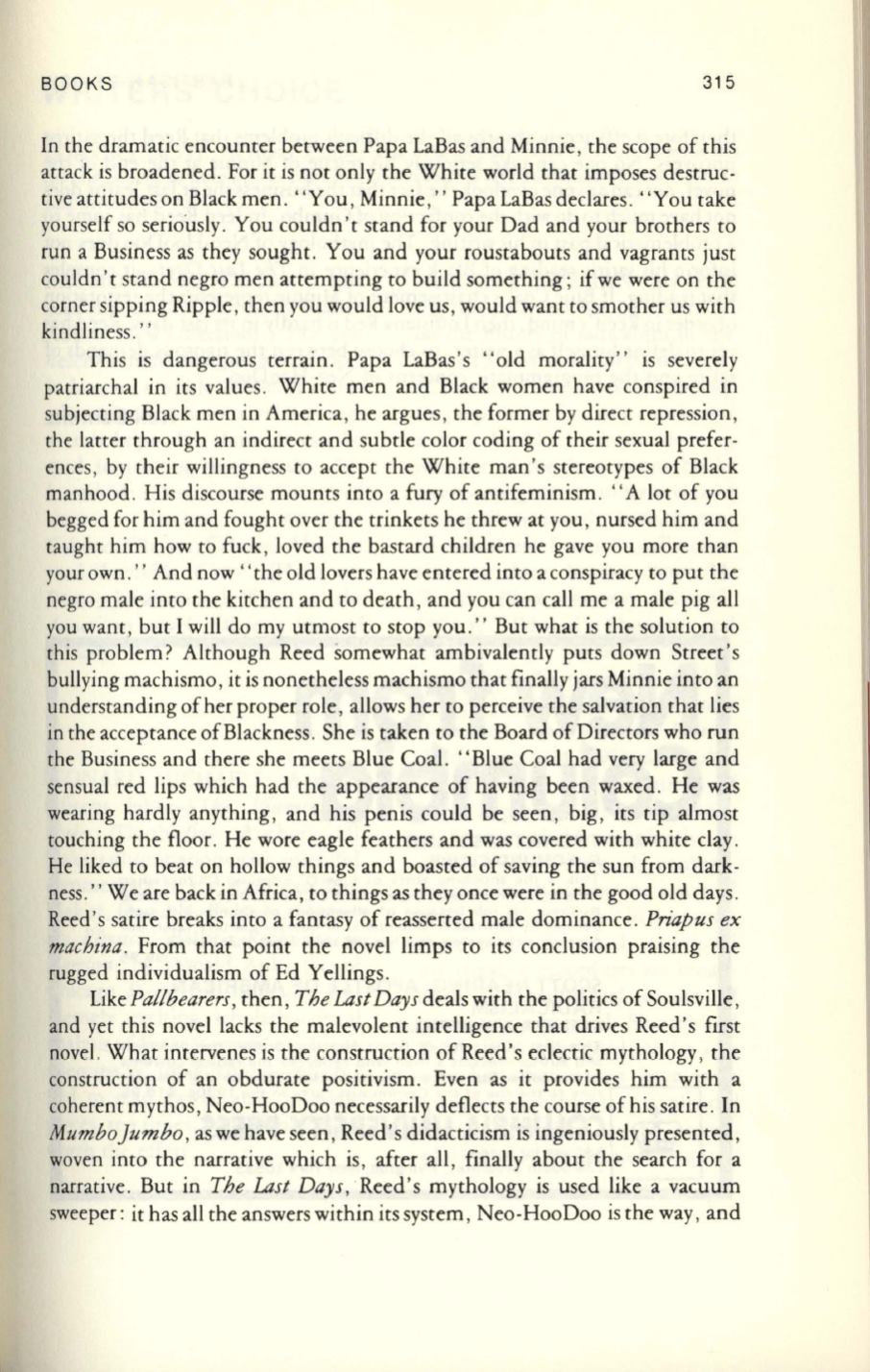
BOOKS
315
In the dramatic encounter between Papa LaBas and Minnie, the scope of this
attack is broadened . For it is not only the White world that imposes destruc–
tive attitudes on Black men. " You, Minnie , " Papa LaBas declares . "You take
yourself so serio·usly. You couldn ' t stand for your Dad and your brothers to
run a Business as they sought . You and your roustabouts and vagrants just
couldn't stand negro men attempting to build something ; if we were on the
corner sipping Ripple , then you would love us , would want to smother us with
kindliness .' ,
This is dangerous terrain . Papa LaBas's "old morality " is severely
patriarchal in its values . White men and Black women have conspired in
subjecting Black men in America, he argues, the former by direct repression ,
the latter through an indirect and subtle color coding of their sexual prefer–
ences , by their willingness to accept the White man's stereotypes of Black
manhood . His discourse mounts into a fury of antifeminism . " A lot of you
begged for him and fought over the trinkets he threw at you , nursed him and
taught him how to fuck , loved the bastard children he gave you more than
your own ." And now ' ' the old lovers have entered into a conspiracy to put the
negro male into the kitchen and to death, and you can call me a male pig all
you want , but I will do my utmost to stop you ." But what is the solution
to
this problem? Although Reed somewhat ambivalently puts down Street's
bullying machismo , it is nonetheless machismo that finally jars Minnie into an
understanding of her proper role , allows her to perceive the salvation that lies
in the acceptance ofBlackness . She is taken to the Board of Directors who run
the Business and there she meets Blue Coal. "Blue Coal had very large and
sensual red lips which had the appearance of having been waxed . He was
wearing hardly anything, and his penis could be seen, big, its tip almost
touching the floor. He wore eagle feathers and was covered with white clay .
He liked to beat on hollow things and boasted of saving the sun from dark–
ness ." We are back in Africa, to things as they once were in the good old days .
Reed's satire breaks into a fantasy of reasserted male dominance .
Priapus ex
machina.
From that point the novel limps to its conclusion praising the
rugged individualism of Ed Yellings .
Like
Pallbearers ,
then,
The Last Days
deals with the politics of Soulsville ,
and yet this novel lacks the malevolent intelligence that drives Reed's first
novel. What intervenes is the construction of Reed's eclectic mythology , the
construction of an obdurate positivism . Even as it provides him with a
coherent mythos , Neo-HooDoo necessarily deflects the course of his satire .
In
MumboJumbo,
as we have seen , Reed's didacticism is ingeniously presented,
woven into the narrative which is, after all, finally about the search for a
narrative. But in
The Last Days ,
Reed's mythology is used like a vacuum
sweeper : it has all the answers within its system , Neo-HooDoo is the way, and


